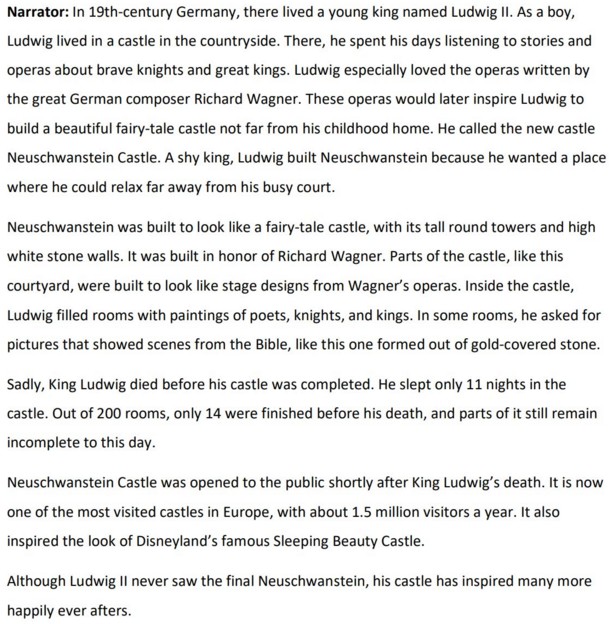happily ever afters 是什么意思和用法

老师,请教图片中的英文:
1)为什么不是would have inspired呢?不是应该站在现在的立场,去推测过去发生的事情吗?
2) 结尾处的happily ever afters 没有看懂什么意思?最后一句more是限定修饰happily吗?
谢谢!
最佳答案 2021-11-16 16:10
童话故事通常会以 they lived happily ever after. 由此人们就把happily ever after用作一个名词,表示(从此)幸福、快乐的意思,并可以在末尾用复数形式-s。下面是COCA语料库 happily ever after(s)用作名词性成分的例句:
My dad said, " There are no happily ever afters, just new battles. "
While happily ever afters and sweet characters may be exactly what some people are looking for -- ...
I was 23-years-old and had fantasies of white picket fences and happily ever afters, not uncommon for most young brides.
That was the moment of sweeping music and happily ever afters for our hero.
But there's also happily ever afters like Carl, Russel, and Doug in Up.
Often the cases didn't come with happily ever afters.
You get married and everyone wishes you happily ever after.
Even when it didn't seem like this princess was going to get her happily ever after.
所以,网友的这个句子 His castle has inspired many more happily ever afters.中,happily ever afters是一个名词词组,复数形式,为has inspired的宾语。many more为限定词,限定这个名词词组。
would inspire是讲故事的人站在过去的立场对过去将来的推测,而不是站在现在的立场对过去的推测。所以不要改动原句。
如果觉得我的回答对您有用,请随意打赏。你的支持将鼓励我继续创作!

- 1 关注
- 2 收藏,6562 浏览
- yxy39 提出于 2021-11-08 23:49
相似问题
-
 《高考英语备考1号·速效编》
《高考英语备考1号·速效编》
-
 《高考英语备考1号·写作编》
《高考英语备考1号·写作编》
-
 《高中英语晨读晚记》
《高中英语晨读晚记》
-
 《高中英语错题笔记》
《高中英语错题笔记》
-
 《零起点考大学英语》
《零起点考大学英语》
-
